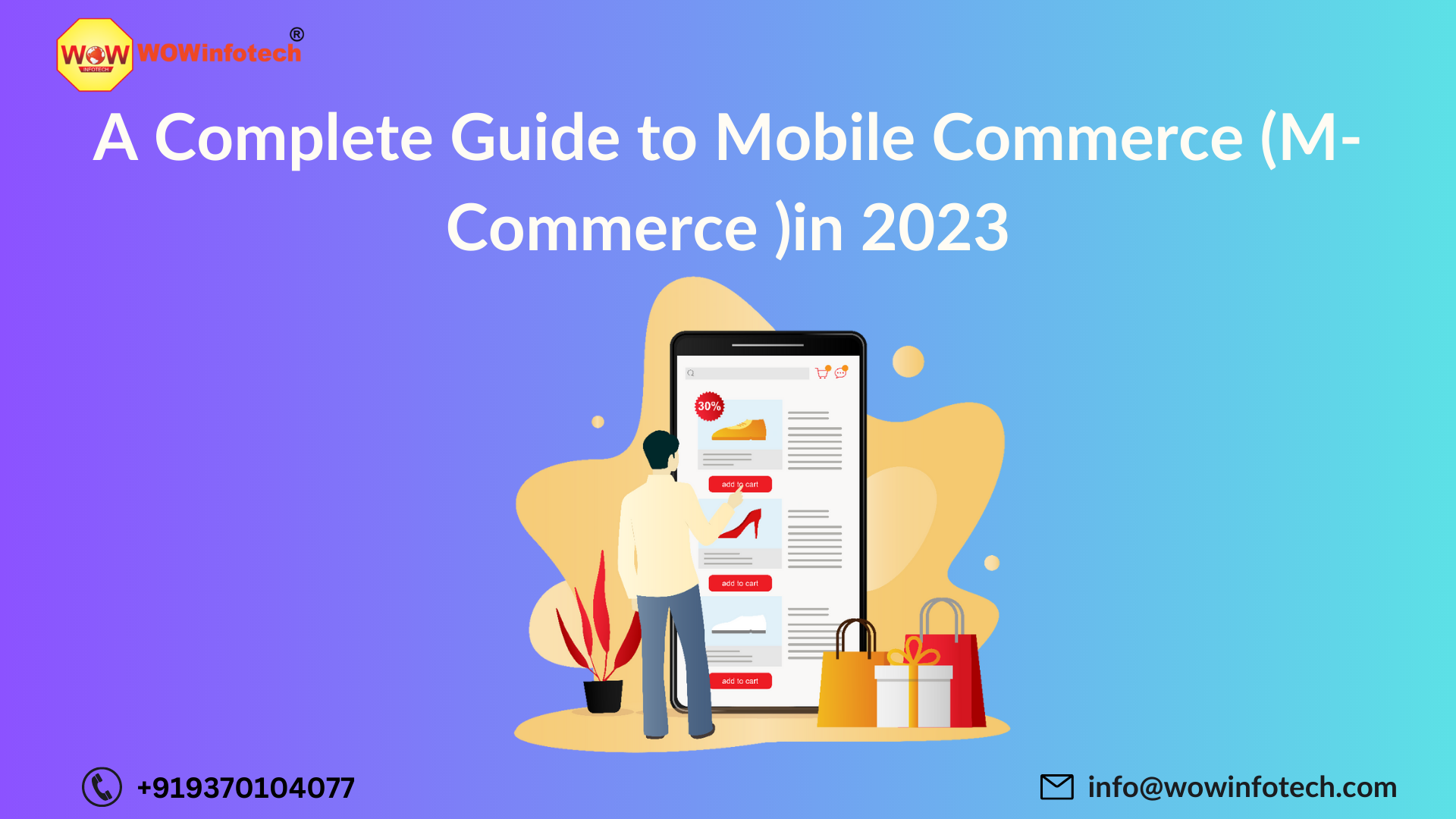Mobile commerce, or m-commerce, refers to the use of wireless handheld devices like mobile phones and tablets to carry out business activities online, such as the buying and selling of goods, conducting financial transactions, and paying bills.
For owners of Internet businesses, understanding the realm of mobile commerce has become increasingly crucial. Smartphone shopping currently accounts for 50% of all online retail sales, and this percentage is predicted to grow over time.
This article will define mobile commerce, discuss how it varies from eCommerce, and discuss the many types of mobile commerce. We'll also demonstrate the advantages of mCommerce for companies and the recommended practices to use for your mobile buying.
Why Is Mobile Commerce Important and What Does It Entail?
Mobile commerce also referred to as m-commerce, is any transactional activity carried out utilizing a mobile device. It can include everything from buying and selling commodities to sending money between people.
In recent years, the m-commerce market has expanded dramatically along with the rise in smartphone usage.
Convenience is one of the causes of the increase. Using a mobile device, consumers can make purchases of goods and services while on the go. Digital wallets and social media shopping are just two examples of innovations that have greatly improved the user experience.
Types of Mobile Commerce
1. Mobile Shopping
Using a mobile device to buy and sell goods and services is known as m-commerce. From the standpoint of the user, these activities can range from smartphone product browsing to ordering a ride-hailing service using an application.
It may entail techniques for selling goods and services on the commercial side. The use of push notifications on mobile applications, sending location-based SMS marketing, and creating shoppable posts on social media are a few examples.
2. Mobile Banking
This phrase describes using a mobile device to access banking services like checking account balances or depositing checks. Although many banks have their own apps and mobile websites, several also offer services via SMS.
3. Mobile Payments
Sending and receiving money through a mobile application is included in this category.
MCommerce has led to the development of new payment methods including digital wallets. Instead of utilizing credit cards or cash, users can use them to pay for online or offline transactions using their cell phones.
Applications for peer-to-peer payments, like Venmo, are also becoming more popular and allow users to send and receive money from one another.
Various Benefits of Mobile Commerce from a business standpoint
For internet businesses to succeed, mobile commerce is becoming more and more essential. Here are a few advantages to think about if you're unsure whether to join this trend:
Connection with the audience right away
Through mobile commerce, you may interact with your customers on their preferred smartphones.
Improved client experience
According to Toptal's analysis, this feature can persuade visitors to stay and make a purchase. Additionally, it can encourage repeat business from 90% of customers, increasing return on investment.
Greater range
Today, around half of all internet traffic comes from mobile devices. Your inability to serve these visitors could cost you a significant amount in lost potential sales.
access to the market for youthful consumers. According to research, Gen Z and millennial shoppers favor mobile online purchasing over that of older generations. Given the immense purchasing power of both segments, catering to them can be beneficial.
Increased Client Experience
Toptal's study indicates that this feature has the potential to encourage visitors to remain and make a purchase. Additionally, it can increase return on investment by promoting recurring business from 90% of clients.
A Wider Range
Today, mobile devices account for the majority of internet traffic. You can lose a lot of money in lost potential purchases if you are unable to serve these people.
access to the market for consumers underage. In contrast to older generations, Gen Z and millennial customers prefer mobile online purchases. The benefits of appealing to both sectors can be seen in their enormous spending power.
Develop a Mobile Commerce Application
Especially if you plan to operate an online business for a long time, investing in the development of a mobile commerce app may be worthwhile.
US individuals spend significantly more time using applications than browsers, according to eMarketer. Furthermore, compared to websites, mobile applications have greater average conversion rates and order values.
Five Strategies to boost your mobile commerce sales
- Ensure that your website is mobile-friendly.
- Streamline the checkout procedure.
- Create a custom mobile application or PWA
- Create a seamless multichannel customer experience
- Pay attention to social commerce and chatbot
Personalization is one factor in customers' preference for mobile applications. Apps can track and save user preferences, enabling them to make product recommendations based on that data. Additionally, some apps let you add things to wish lists for later purchases.
Employing a developer is typically necessary to create a mobile commerce application. However, without any prior coding experience, users can construct one using programs like AppyPie.
-

Krishna Handge
WOWinfotech
Jul 28,2023
